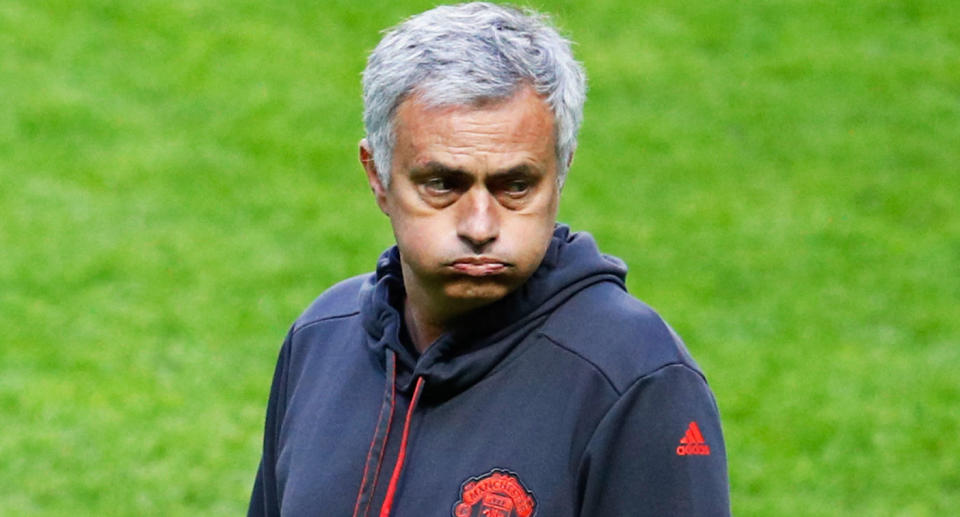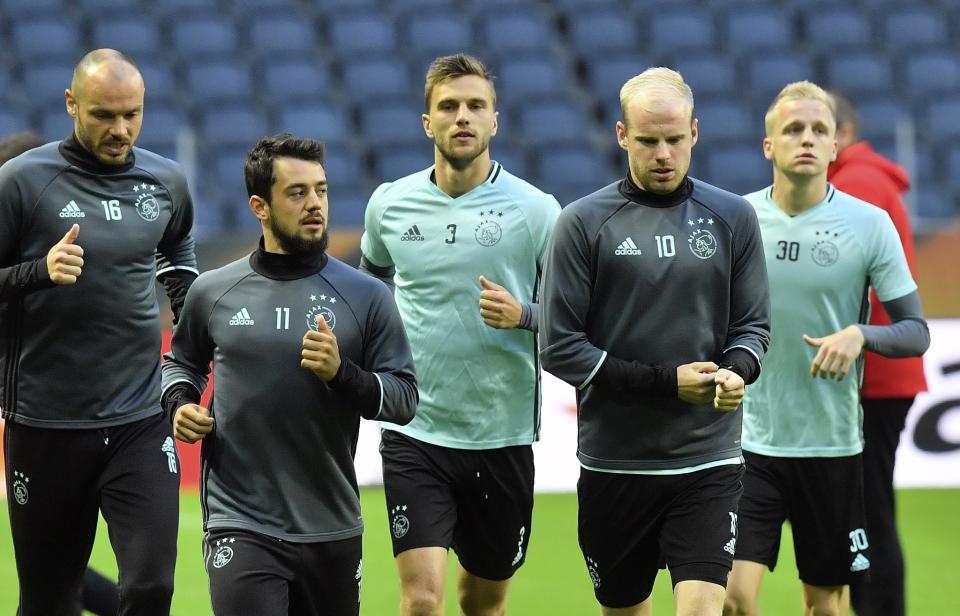To Manchester United and Ajax, victory in the Europa League will mean very different things

There will be a Europa League final on Wednesday and one club that has brandished its name internationally by winning the Champions League multiple times will win it. It’s been years since the European Cup Winners’ Cup was banished and the UEFA Cup was rebranded into the Europa League, to make it sound more like the big tournament, yet the event remains the Champions League’s hapless little brother.
The Europa League is still the ugly duckling of continental soccer, and even though it has a habit of producing more open and entertaining games than the Champions League, most big clubs aren’t entirely sure how to feel about it.
[ Follow FC Yahoo on social media: Twitter | Facebook | Tumblr ]
After all, the old joke goes that it crowns the 33rd-best team of Europe, since the best 32 qualified for the Champions League. Or maybe that’s the 17th-best, considering that third-place teams in the Champions League group stage flow into the secondary tournament – which is an indictment in itself.
Whatever. The Europa League exists and it’s a prize. A major one. Yet it’s not the big prize, even though it’s very hard to win all the same.
Which brings us to two historic and iconic clubs in decay – albeit one much more so than the other. Manchester United, winner of three European Cups and Champions Leagues – the former begat the latter in 1992 – takes on Ajax, winner of four, just outside Stockholm. And neither seems convinced of what it means or says about them.
[ Europa League final: Get live updates on Ajax vs. Manchester United ]
United has never won this tournament, in its current or previous incarnations, but then that hasn’t exactly been a gaping hole in its trophy case. When you’ve won the Premier League a record 20 times and been a regular contender in the Champions League, you’re not that bothered about the Europa League. Ajax did win it once, in 1992, but it takes a secondary spot in the display case in the long shadow of all those European crowns and 33 Dutch championships, which is also a national record.
Plainly, this is a consolation prize to Jose Mourinho’s United, which remains in a tortuous rebuilding process since Sir Alex Ferguson retired in 2013, going on four full seasons now. Winning the Europa League materialized as the most viable path back to the Champions League after an abundance of draws and back-to-back losses to Arsenal and Tottenham Hotspur rendered the Premier League route a dead end for a second year in a row.
For United, then, the Europa League essentially became a convoluted qualification tournament to the Champions League. Yet a club that hasn’t exactly been setting the world alight, winning nothing but an FA Cup and a League Cup since the last league title in 2013, probably ought not to be dismissive of a Europa League crown. United and its fans won’t like it, but given its recent decline, winning this thing probably isn’t anything to sniff at.
It certainly isn’t for Ajax, which lives in an entirely different reality. While every bit as storied in European competition as United, the economics of the game make this just about the highest attainable goal for the Amsterdammers. Unlike United, Ajax’s failings aren’t a consequence of mismanagement and incompetence. United is awash in cash, thanks to the Premier League’s soaring broadcast rights and a global machinery flogging merchandise, but Ajax is stuck in the relatively poor Dutch league and just can’t keep up.

Ajax has a very young and very exciting team, attacking with abandon before positioning teenage prodigy striker Kasper Dolberg or Chelsea loanee Bertrand Traore. But the best players will be cherry-picked long before they hit their primes. First-year manager Peter Bosz has seen his profile rise meteorically with the team’s dazzling play, so he’ll probably move on and up soon enough, too.
To Ajax, this is a rare chance to relive a long-faded glory. Indeed, this is its first European final since 1996, when it reached its fifth and last Champions League title game – and lost to Juventus on penalties after beating AC Milan to lift the trophy the year before. But United made the Champions League final in 2008, 2009 and 2011 and can reasonably expect to return to the title match at some point in the future.
For the Red Devils, these years are likely a lull. United has sunk and then treaded water for four years, spending unfathomable sums on players – making Paul Pogba the most expensive player in the world just four years after he walked out of the club’s academy for free – just to not regress. But you’d expect United to eventually get back to where it once was.
Ajax surely won’t And to embrace this achievement for what it is, as the club and its fans undoubtedly have, is also to accept the club’s new and diminished place in the soccer world. By celebrating this run, they are accepting their lot and that the glory days are, in effect, over.
Both managers could use this trophy. For Bosz, to burnish his image as a manager on the rise. To Mourinho, to buy him time. The truth is that those clubs belong here, much reduced as they are from what they once were, but still apparently capable of winning something.
So on Wednesday, a club that has done far greater things in its past will win the Europa League. And that same club should probably celebrate anyway, as its current reality doesn’t lie.
Leander Schaerlaeckens is a Yahoo Sports soccer columnist. Follow him on Twitter @LeanderAlphabet.
More soccer coverage from FC Yahoo:
• UEFA should postpone Europa League final after Manchester bombings
• Real Madrid wins first La Liga title in five years, Barca falls short
• Arsenal misses out on Champions League as City, Liverpool finish top-four
• Bayern says goodbye to legends Lahm, Alonso on emotional final day
• Watch this crazy Bradley Wright-Phillips bicycle goal for the Red Bulls
• Tottenham’s biggest test will come during very tense summer transfer window


